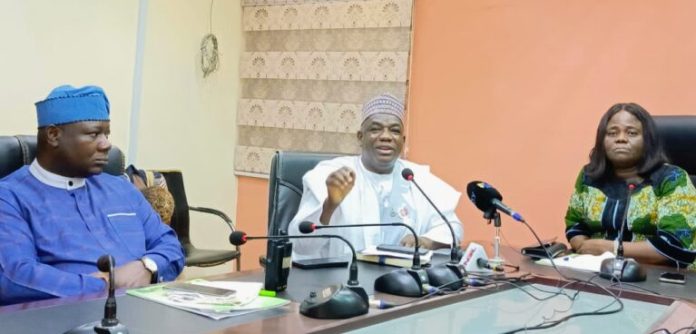The Federal Capital Territory Administration (FCTA) says it has concluded plans to review the security architecture in the federal capital, Abuja.
The Director, Department of Security Service, FCTA, Mr Adamu Gwary, stated this during end-of-year media briefing in Abuja on Sunday.
Gwary said that plans had also reached advanced stages to revive the G-7 security initiative and expand its number of security informants to include artisans and farmers among others.
Read Also:Cuba partners FCTA to eradicate malaria
He explained that the use of informants and vigilante groups for information and intelligence gathering, were part of community policing of the FCT Administration.
This, according to him, will ensure that the capital city remains safe and secured.
The director added that the FCTA have banned begging and hawking within the secretariat as part of efforts to ensure security.
He also said that the FCTA has concluded plans to float an effective transportation system to address the menace of one chance operators in the capital city.
“We are working assiduously behind the scenes to maintain security in the nation’s capital, including keeping peace between herders and farmers.
“We are also working with relevant agencies in preventing vandalisation of public utilities,” he said.
He said the FCT Administration has completed the installation of CCTV cameras around its secretariat in phase I of the programme, adding that the phase II would involve installation in strategic areas of the city.
This, according to him, will enable security agencies to monitor, arrest and prosecute criminals.
He called on residents to be security conscious and report any suspicious happenings to nearby Police stations.
Gwary equally charged tradition leaders to adhere to the code of conduct guiding the traditional institutions, disclosing that a traditional chief was arrested for his involvement in kidnapping.
Read Also:Can Nyesom Wike conquer the cancerous Abuja Transport debacle? By Festus Fifen
He added that the chief has been stripped of his title and handed over for prosecution.
He decried the weak legal structures in the FCT, which he said was negatively affecting adjudication and punishment of lawbreakers and criminals.
By Philip Yatai (NAN)






